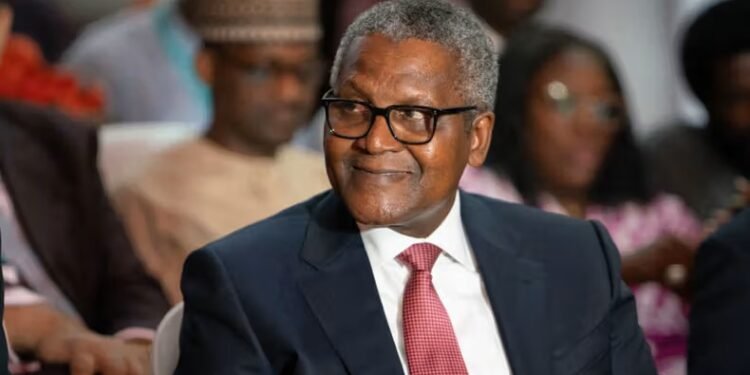The Dangote Refinery, owned by Africa’s richest man, Aliko Dangote, currently imports about 9–10 million barrels of crude oil each month from the US and other countries due to challenges in securing competitively priced Nigerian crude. Dangote disclosed this while delivering a keynote address at the West African Refined Fuel Conference in Abuja, organized by the Nigerian Midstream and Downstream Petroleum Regulatory Authority (NMDPRA) and S&P Global Commodity Insights.
Dangote revealed that the refinery is forced to buy crude through international traders, who acquire Nigerian crude at inflated premiums before reselling it.
Africa Must Curb $90 Billion Petroleum Importation
According to Dangote, Africa spends about $90 billion annually importing over 120 million tonnes of refined petroleum products due to limited local refining capacity. He lamented that this dependency not only exports jobs but also deepens poverty across the continent.
“We produce plenty of crude yet import refined products worth $90 billion annually—an amount larger than the GDP of most African countries,” Dangote noted. He stressed that Africa must stop the economically illogical practice of exporting crude only to re-import refined products that can be produced locally.
Dangote Refinery: Building an Industrial Ecosystem
Speaking on the complexities of building the world’s largest single-train refinery, Dangote highlighted the massive scale of the Dangote Refinery project. Covering 2,735 hectares—seven times the size of Victoria Island—the project required the pumping of 65 million cubic metres of sand, over 250,000 foundation piles, and millions of metres of piping and wiring.
At peak construction, more than 67,000 workers (50,000 of them Nigerians) were on-site. The COVID-19 pandemic delayed completion by two years, but the project persevered.
The Dangote Refinery also required the creation of a dedicated seaport, as existing ports in Nigeria could not handle the size and volume of equipment. This involved moving 2,500 pieces of heavy equipment, 330 cranes, and building the world’s largest granite quarry with a 10 million-tonne annual output.
“We didn’t just build a refinery—we built an entire industrial ecosystem from scratch,” Dangote emphasized.
READ ALSO: GDP Rebase: ADC Criticizes Tinubu’s Government Over “Statistical Cosmetics”
Commercial and Regulatory Challenges
Despite its technical success, the Dangote Refinery faces commercial and logistical hurdles. Currency fluctuations have been severe, with the exchange rate moving from N156/$ at the start of the project to N1,600/$ today.
Dangote explained that instead of sourcing crude directly from Nigerian producers at fair terms, the refinery often buys from international trading companies at higher costs.
“As we speak today, we buy 9–10 million barrels of crude monthly from the US and other countries,” he said.
Although the Nigerian National Petroleum Company Limited (NNPC) has made some Nigerian crude available, high port charges and regulatory costs remain major challenges. Port charges in Nigeria account for up to 40% of freight costs—higher than those faced by refiners in India.
Dangote also criticized the absence of harmonized fuel standards across Africa, which prevents the Dangote Refinery from selling its fuel easily to neighboring countries like Ghana, Cameroon, or Togo. He warned that substandard fuel from Russia is being dumped on African markets, further undermining local refiners.


